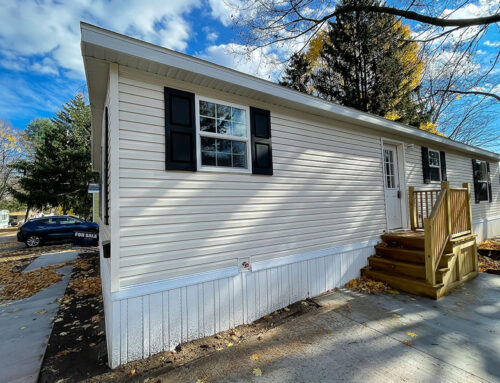Most landlords in New York have a story about a particular nightmare tenant. I’m not talking about the run-of-the-mill obnoxious neighbor who plays music that nobody likes too loudly. Nope. It can actually be much, much worse and very expensive since our city’s laws favor tenants significantly more than rental property managers. This is especially the case with one issue that often affects investment rental properties—rats! New York City has been experiencing a rat infestation epidemic over the past several years and it keeps getting worse, thanks to slovenly tenants who don’t keep their properties tidy. It seems like no matter what you do, your rental property will inevitably be affected by rodents. Then, tenants will complain. And you will be on the hook to solve an impossible problem of rats. What’s a landlord to do?
Preventing Rats: Tenants’ Rights Trump Yours in New York
Some landlords try to mitigate the risk of a costly rat problem by outlining both their own and the tenants’ responsibility clearly in the initial rental contract. These landlords don’t want to leave rat mitigation completely up to the tenant as it might not get accomplished to their satisfaction. And, they are the only party motivated to maintain the value of the property. One way these rental contracts are structured is that landlord agrees to provide a rat-free dwelling upon the tenant moving in and thereafter the tenant is responsible. Another way that landlords try to set expectations is by making a contractual agreement to provide regular treatments, perhaps four times per year, and specifying that remedies in between remain the responsibility of the tenant.
Regardless of the agreement, in New York, tenants have a right to live in a habitable, safe, and clean unit—and it is the landlord’s duty to provide it. Moreover, any contractual inclusion outlining a tenant’s responsibility may be understood by the courts as an attempt to intimidate the tenant. So, regardless of circumstance, it’s generally up to the landlord to schedule and pay for an exterminator to come take care of any rat mitigation problem.
If you are faced with a rat problem in one of your rental properties, it is critical to respond to any tenant complaint promptly. You can then sort out the financial responsibilities later to avoid a costly legal proceeding. To protect yourself from a tenant seeking legal remedy, you should document everything from the initial date that the tenant first reports the problem. Keep a journal of each communication with the tenant as well your response timeline. When you call an exterminator, they may be able to provide you with notes about the cause of the infestation. Most importantly, be sure to maintain a file with all the invoices you paid to resolve the issue for the tenant.
What can Happen if You Don’t Respond Quickly to an Infestation Problem
You want to do everything in your power to act swiftly when faced with a tenant who complains about rats on the property. If you don’t respond in a timely manner, according to New York City law, the tenant could take numerous steps to get your attention. Be warned—all of the potential retaliatory actions by tenants are tough to bear, not to mention expensive.
- Call authorities. Tenants who are dissatisfied with your response can file a complaint with the Department of Housing Preservation and Development either with a quick phone call to 311 or by filling out an online form. Then, a city inspector will be dispatched to your property. They will not only confirm the presence of rats in your building but also will inspect for additional safety issues. You will be issued a citation for each noted problem. It will then be your responsibility to correct the issues and prove that you did so within the specified timeline. Otherwise, you will have to pay a fine and could potentially face jail time.
- Employ the “repair-and-deduct” remedy. Tenants are legally entitled to hire an exterminator themselves and deduct the cost from their rental fee. Of course, don’t expect them to use the most cost-effective solution. They aren’t spending their own money on the problem.
- Withhold rent. Potentially even more expensive than the “repair-and-deduct”’ approach, tenants are allowed to withhold paying rent altogether until the rat problem is solved by you. Worse, they can also sue you for a longer-term rent abatement.
Of course, if you believe the rat infestation stemmed from the behaviors and actions of the tenants and they stop paying the full amount of rent, you have the choice to begin the eviction process. However, that puts you in the position of possibly being counter-sued for breaching the implied “warranty of habitability.” You see how this could become a lengthy legal merry-go-round, right?
How I Learned My Lesson in Pest Infestations
When I was faced with a rat problem and an uncooperative tenant, I got frustrated and changed the locks on the unit after six long months of facing legal arguments from the tenant. It turned out the eviction wasn’t fully complete in the eyes of the court and I paid big time. Not only did I still have a rat problem in my building despite all the exterminator treatments, I lost out on months of rent and had a hefty lawyer bill on my hands.
Even if you feel backed into a corner by your tenants’ rodent complaints, there are some alternative means of solving the problem—just don’t get angry and make the situation worse. I learned from my mistake, though. Now that I am a HomeVestors® franchisee, whenever I have a tenant problem that I can’t untangle on my own, I reach out to my Development Agent. She has years of experience to guide me through tough issues like this. Her seasoned input is priceless and, surprisingly, my HomeVestors® real estate investment franchise cost me less than my rat problem.
Each franchise office is independently owned and operated.
Contact
"*" indicates required fields





